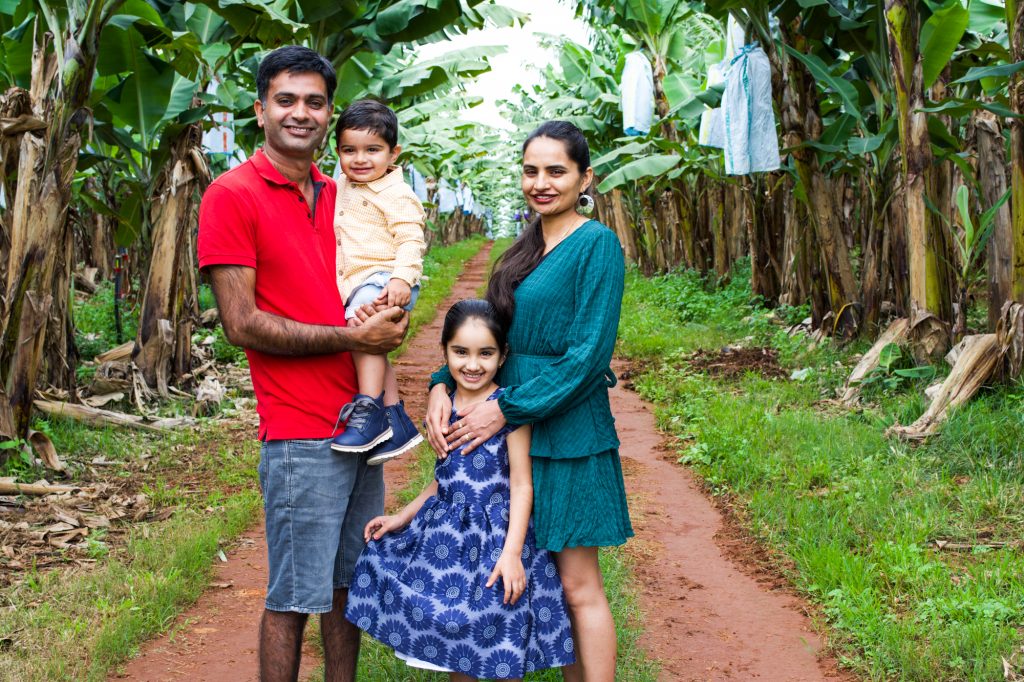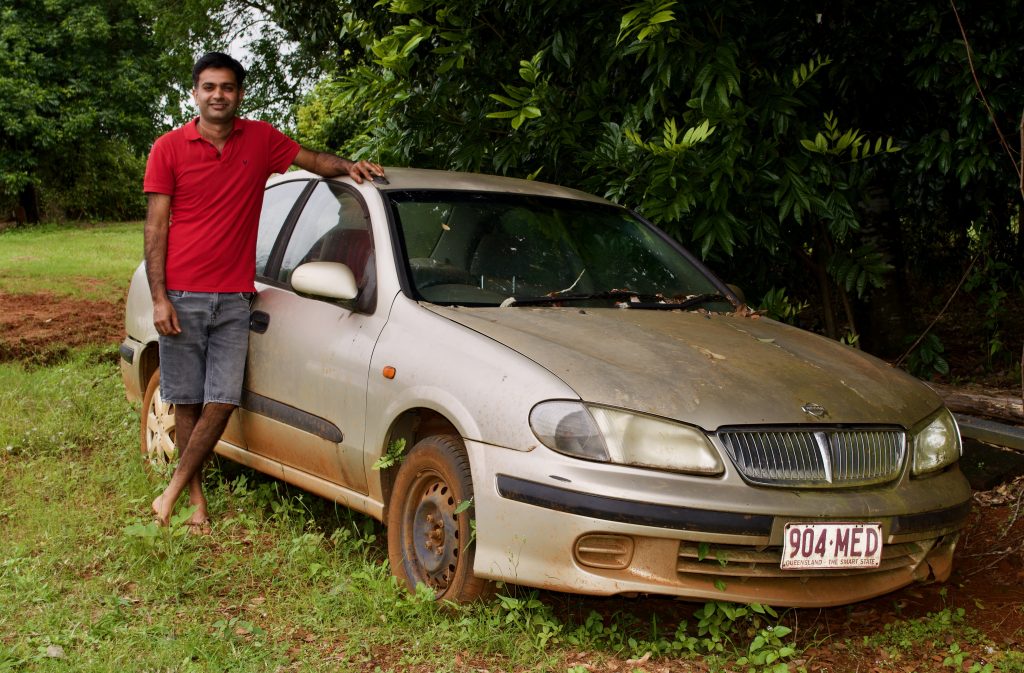
By Lea Coghlan
A run-down, rusted Nissan Pulsar sits in the yard of Innisfail banana grower Ricky (Randeep) Sahota.
It’s not mechanically sound, nor is it used anymore on the farm these days, but its existence is a great reminder of how far the Indian-born grower has come since arriving in Far North Queensland 12 years ago.
“When we bought the farm, we spent all our money on buying the farm,” Mr Sahota explained.

“We didn’t have any money to buy a bike or a farm ute, so the car was the only transport we had.
“I would drop off my wife at work in town, collect stuff for the farm and then come home and tend to the bananas.
“I kept the rows pretty clean so my car could go through.”
With a tight budget, Mr Sandeep and wife Parveen focussed on the farming necessities when they purchased the Mamu Road property at Garradunga.
Their minimalist approach – they invested in machinery that was critical to growing bananas like a bagging machinery, albeit a second-hand one – has paid off, and is a real credit to the hard work the family has put in.
Today, there is a designated family car in the garage and an ATV bike while a farm ute will arrive later this year.
Mr Sahota arrived in Innisfail in 2008 on a student visa, encouraged by stories from farming friends who had made a life for themselves growing bananas in the region.
His family grew cotton, canola and wheat in northern India in relatively dry conditions.
“It was pouring rain for months on end when I arrived in Innisfail,” Mr Sahota said.
He soon acclimatised and continued working in the banana industry for seven years before the Mamu Road property came up for sale.
He purchased the property with cousin Amarpal (who has since returned to India) in 2015.
Today, Mr Sahota grows 18 hectares of bananas and leases some land to a local cane farmer.
The early days were tough – both Ricky and Parveen, and Amarpal and his wife – worked off- farm during the week, and packed bananas on the weekend.
There was second-hand machinery and little technology.
“When we purchased the farm, I didn’t have automated irrigation, so I had to change the valves every three to four hours at night,” Mr Sahota recalled.
“At the same time, our daughter was born so she was my alarm clock at night for me to head out into the planation and change the valves.”
In 2019, Mr Sahota secured a Reef Trust grant to install an automated fertigation system, with a second grant earlier this year allowing him to upgrade.
Mr Sahota’s bananas are marketed by Innisfail- based company, Tropicana Banana, and generally sold through the Sydney wholesale markets.
Mr Sahota admits he never came to Australia with a plan to buy a banana farm.
“Having worked in the industry, it was what I knew how to do,” he said.
“I like growing bananas.
“It’s a 12-month crop and if the prices are right and you have good fruit, you can make money. It’s
a competitive market and this keeps you on your toes.”
While he spent nearly a decade working on banana farms, growing Australia’s number one selling supermarket fruit was a different story.
“I knew how to work in bananas, how to cut a bunch, de-sucker and de-leaf but I didn’t know how to grow them, and I knew nothing about fertiliser and chemicals,” Mr Sahota explained.
“It was big learning curve.
“Farming bananas in Australia is intensive – there’s so many jobs you need to do, at certain times. I’m still learning how to farm and grow bananas but every year is getting better.”
